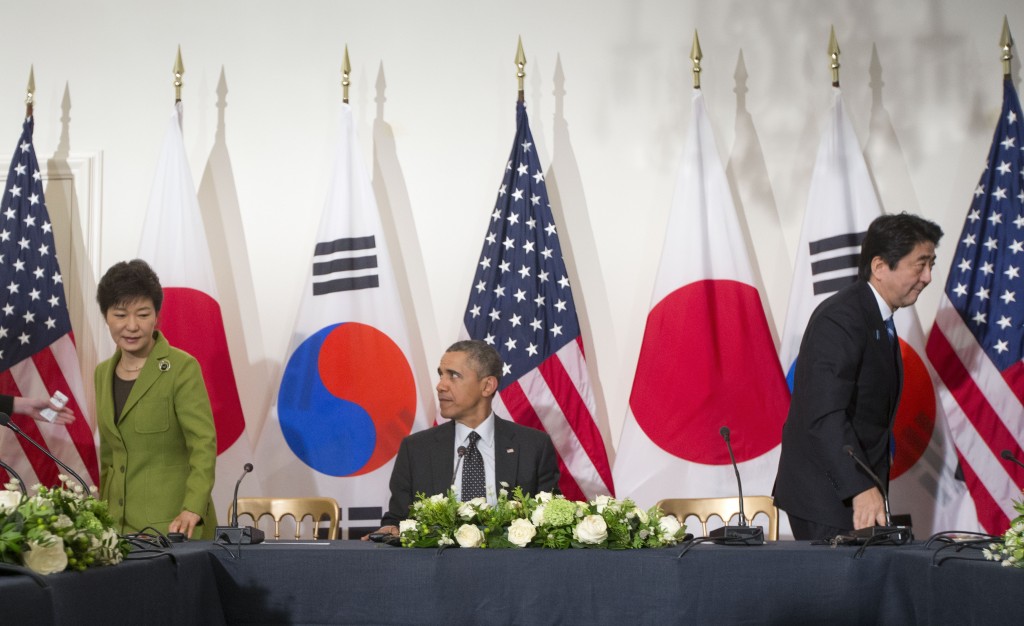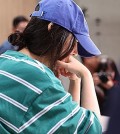- California Assembly OKs highest minimum wage in nation
- S. Korea unveils first graphic cigarette warnings
- US joins with South Korea, Japan in bid to deter North Korea
- LPGA golfer Chun In-gee finally back in action
- S. Korea won’t be top seed in final World Cup qualification round
- US men’s soccer misses 2nd straight Olympics
- US back on track in qualifying with 4-0 win over Guatemala
- High-intensity workout injuries spawn cottage industry
- CDC expands range of Zika mosquitoes into parts of Northeast
- Who knew? ‘The Walking Dead’ is helping families connect
[WSJ Archive] 50th Anniversary of Normalization of Japan-South Korea Ties

President Barack Obama watches as South Korean President Park Geun-hye, left, and Japanese Prime Minister Shinzo Abe, leave their seats at the opposite ends of the table, Tuesday, March 25, 2014, during the start of their trilateral meeting at the US Ambassador’s Residence in the Hague, Netherlands. (AP Photo/Pablo Martinez Monsivais)
[THE WALL STREET JOURNAL] — Japan and South Korea will mark 50 years of renewed bilateral ties next week. “Celebrate” would probably be an overstatement.
While South Korean Foreign Minister Yun Byung-se will visit Japan to mark the occasion, it will be the first trip to the country by a South Korean foreign minister in four years, reflecting the current chill between the two neighbors.
Tokyo and Seoul signed the agreement restoring ties on June 22, 1965. At the time,Japan’s then-Prime Minister Eisaku Sato later said, Japan’s colonization of Korea and other chapters in the long history between the two countries made negotiations difficult.
“Japan and South Korea signed documents restoring normal ties. Thousands of persons in both countries demonstrated against the accord,” The Wall Street Journal reported June 23, 1965. “Students in Seoul called the treaty the product of ‘humiliating concessions.’ Leftists in Tokyo protested that the normal relations would prevent South Korean unification with the Communist north.”
Tokyo offered two landmark apologies in the 1990s over Japan’s conduct during its colonial rule of the Korean peninsula. The Kono statement, issued in 1993, and the Murayama statement, in 1995, both touched on the imperial army’s atrocities. [READ MORE]















